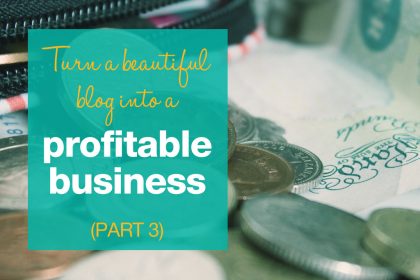Why you need to STOP using email templates
Want to write for us (or other popular websites)? Find out why you need to stop using email templates – and start proof reading!
As you can imagine, with over 86,000 unique visitors a month on our site, we get a LOT of emails every day. And a large percentage of these are cold emails from people wanting to write for us, share infographics, or asking us to add a link to their resource into an existing article.
It’s got to the point where trawling through our official inboxes is virtually a full time job, and many important emails are missed among the sheer volume of what amounts to junk.
To make matters worse, many people will chase unacknowledged emails, sometimes sending us as many as nine emails in a two week period (yes, seriously). Occasionally their emails border on the rude, disbelieving that we hadn’t immediately seen the value of their generous offer, and demanding that we reply immediately.
But what these people fail to realise is that, after five years, we’ve seen it all before. Literally. You see, many of the emails we receive are obviously templated, and sent en masse to hundreds of sites at any one time (the follow ups are probably automated too, just to add to the specialness of being singled out for attention).
In their keenness to blanket email as many websites as possible, many of the people pitching fail to do any research on the topic of the site they’re contacting. Which means that we get all kinds of random suggestions for inappropriate content.
And all too often, the emails we receive are appallingly written, with a strange grasp of English and zero proof reading.
Why you need to stop sending templated emails
On one level we can understand why people are sending templated emails. You may have read a blog or taken an online course that promised you a fail safe way of securing guest posts on websites. And even been recommended wording you were promised would work.
So you dutifully go out and try your new magic email template… and wait for the replies to flood in.
The problem is that everyone else is also using that same template. And when, as a website owner, you receive the same emails over and over again it just looks lazy. It looks like you haven’t tried, have no originality, or just don’t care enough to write your own bespoke email for the site you claim to “read voraciously, lapping up every perfect word”. (Yes we really do receive emails like this – email templates tell you to insert a compliment.)
It’s also pointless pitching your blogs when you can’t even string a coherent sentence together in an email. If you can’t write a decent email then what hope is there that you’ll turn out a readable article?
And one final big template giveaway is the link to the recipient’s website plonked into a sentence, like this:
“I’m an avid reader of https://www.talentedladiesclub.com”
When this happens it’s clear that you’ve cut and pasted your email copy, and lazily inserted our URL into it in an attempt to pose as a genuine, carefully pitched guest blogging request.
And it can’t be just us. If we’re sick of receiving cut and paste emails from strangers then it’s a fair assumption that the owners and content managers of other websites and blogs are too.
An example of an email template
Here’s an example of an email template that was sent to us. In this instance, the author forgot to personalise the prompts, so this is exactly what we received:
Dear
I hope this email finds you well. My name is [name] and I am a [your profession or background]. I am reaching out to inquire about the possibility of submitting a guest post to your website
I have been following your website for some time now and I believe that my writing would be a great fit for your audience. I have a strong interest in [relevant topic or niche], and I would love the opportunity to share my thoughts and expertise with your readers.
I am open to any suggestions or guidelines that you may have for guest posts. I am committed to providing high-quality, informative content that is both engaging and useful to your readers.
If you are interested in my proposal, please let me know and I will be happy to provide more information about my background and writing experience. Thank you for your time and consideration, I look forward to hearing from you soon.
Best regards, [name]
Not even email subject lines are safe
As we explain here, there’s an art to writing an email subject line that compels the recipient to click and open. And we can tell you right now, that art does NOT involve copying a template.
Copying email subject lines is such common practice that we don’t even need to open some emails to know that they’re going to contain the same tired pitch that we’ve read so many times before.
So not only do you need to ensure that your emails are unique to you, but please think about what words you choose to put in your subject line, if you want your email to be opened.
And no, trying to trick people opening by adding “Re:” at the start of the subject line (as if it’s a part of an existing, ongoing correspondence between you) doesn’t work either. Yes, your email may get opened, but it’s just as quickly ignored once the recipient realises they’ve been tricked, or discovers the same old tired template email inside.
Here’s why template emails are SO frustrating
As we mentioned earlier, we receive so many of these template emails that our inboxes are clogged up by them. And it inevitably takes time to deal with them – even if we don’t reply. Time that takes us away from tasks that genuinely add value to our business.
They also mean that we often miss emails from people we do want to hear from. Quite frankly we’re sick of apologising to people who are rightfully chasing emails we haven’t responded to, simply because we missed them in the deluge of junk that washes up in our inbox every day.
So these templated emails aren’t just irritating, they’re detrimental to our business.
We’ve found the perfect antidote to email templates
Luckily we’ve found the perfect antidote to being bombarded by illiterate, templated emails: the ‘block’ option.
We’ve now adopted a one-strike-and-you’re-out policy to cold emails. If we receive a template email, or a poorly written request to write for us (these are never written by genuine business owners – they’re always from cheap content factories) we simply block the sender. Emails with obviously fake compliments also meet the same fate.
We don’t waste our time politely replying that “no, we don’t add free links to our articles after they’ve been published”, or “based on the terrible grammar in your email we have no faith you’d produce anything our readers will want to read”, or even “thanks but we’ve seen this exact email 1,000 times in the past week alone… it’s a no from us as a result”.
Instead we just hit block. And it feels satisfying knowing that you’ve just stopped one less person bombarding your inbox with uninvited requests.
To be fair, we make it very clear that we don’t accept these kind of pitches. So really, the senders of these emails should know better – and would had they done even the tiniest amount of research. Emailing us is just a waste of everyone’s time.
Want to write for us?
So, if you do want to write for us (and we’re always delighted to hear from genuine contributors), you can find out what we look for in an article here, and how to submit your real life story here.
But please, if you’re going to email us, write your own email (sans fake compliment). And proof it before sending!
Photo by rawpixel










